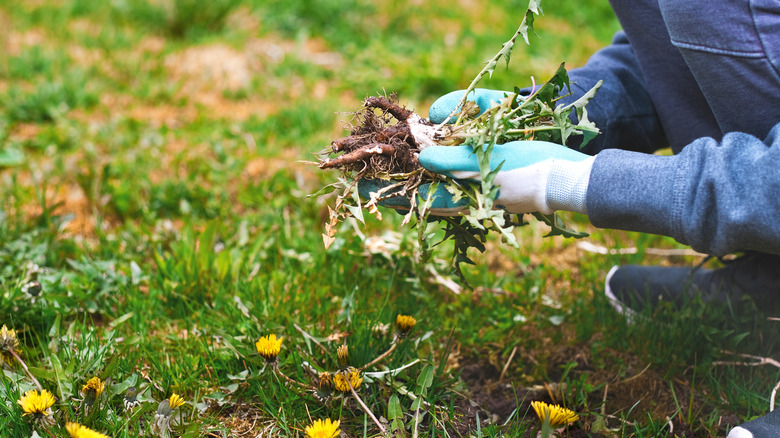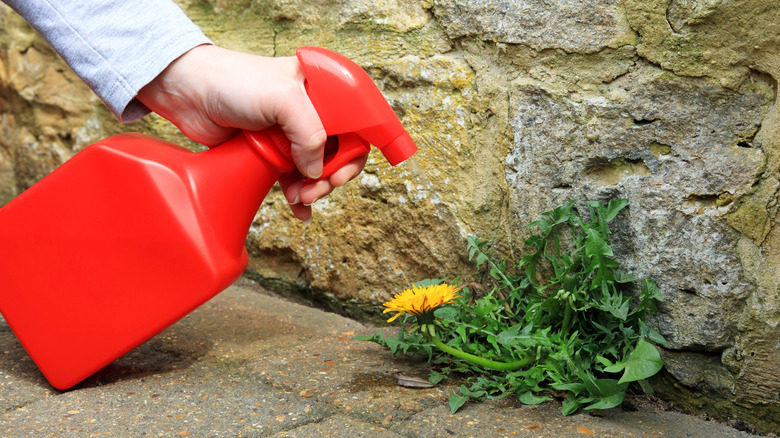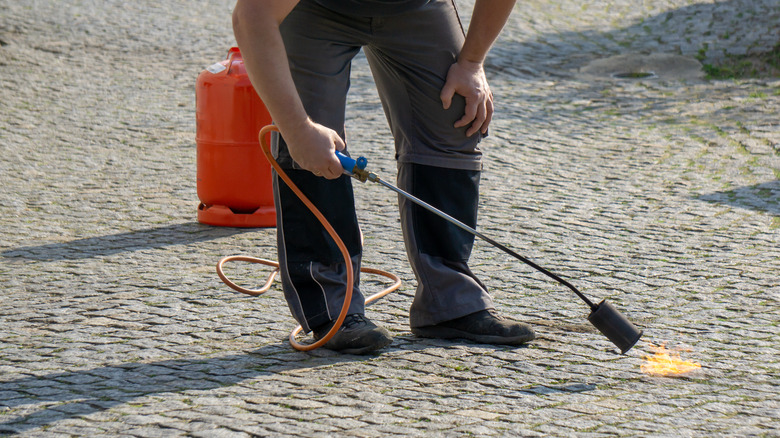Here's What You Can Substitute For Weed Killer
Pesky weeds can be a real problem in your yard, but the use of traditional, chemical-based weed killers can be an even bigger concern should your child or pet come into contact with them. While you may hate just how many weeds are taking over your grass, finding a way to get rid of the invasive growth while protecting the environment and keeping your family safe doesn't sound easy to do. It can be, though, if you know what to look for and use.
Glyphosate is typically the problem in weed killers, as it's an effective, non-selective chemical that can quickly stop most types of weed growth. As the most widely used herbicide, it's easy to find products with it, but it's also toxic to the environment, says NC State Extension. If the product you're using contains this, you may want to look for an alternative. The fact is, there are other substitute solutions that could work.
Make a natural weed killer
With a few simple ingredients from under your kitchen sink, you may be able to create an ideal natural weed-killer substitute that's highly effective and doesn't cause harm to the environment. It's also a very affordable option. To make it, HGTV says to combine 1 gallon of white vinegar with 1 cup of salt and 1 tablespoon of liquid dish soap. Mix the ingredients together in a spray bottle, and then, head outside to spray the problematic pesky weeds.
How can something so simple work? The soap works as a surfactant, allowing the solution to sit on the leaves for an extended amount of time. The vinegar and salt then pull out all of the moisture from the plant, causing it to wilt. To get the best results, spray this combination on the surface of the weed's leaves during the sunniest part of the day when there's ample sunlight present to draw out that moisture.
Turn up the heat
If you have a lot of weeding to do and you don't feel like getting on your hands and knees to pull them, consider the use of heat. According to NC State Extension, flame weeding can work to kill off many broadleaf weeds using heat. You can only use this weed-killer substitute approach on surfaces that are not flammable, such as in a rock garden or on the hardscape materials around your home where there's no threat of catching things on fire. This works well on pavers and areas of driveways where weeds are hard to treat.
You can purchase hand-held flame weeding tools readily for this purpose. Contrary to what it may seem, these products don't burn the weeds to get rid of them but instead use the heat to evaporate the water that's within the plant, causing it to collapse on itself and die off, per Flame Engineering. For larger areas, this is a viable solution.


